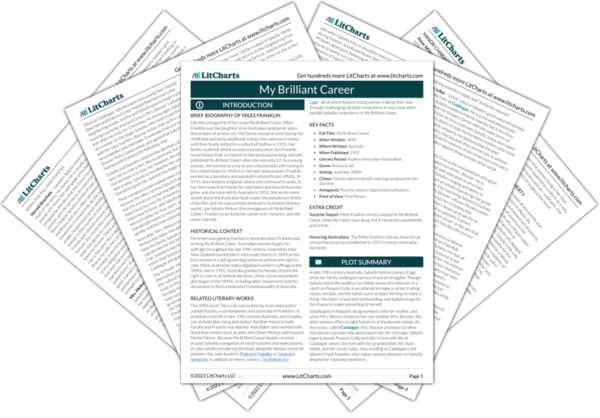Throughout the story, romantic pursuits take the form of literal chases. While Everard’s chase made Sybylla uncomfortable, she is delighted to be chased by Harold. His stoicism and silence make his affection more desirable to the ambitious Sybylla, and the passion evident in the chase excites her. After he catches up to her, Sybylla allows her feelings about men to gain more nuance than plain dislike. She still regards them as “creatures” and “animals,” but she acknowledges that many of men’s flaws are in regard to “little things.” Still, she restricts her acceptance that men can be “wonderful” to men who are in “their right place,” which indicates that Sybylla’s disdain for men has not been replaced with a universal liking of them. However, her willingness to accept that people are not black-and-white shows that Sybylla is maturing.
